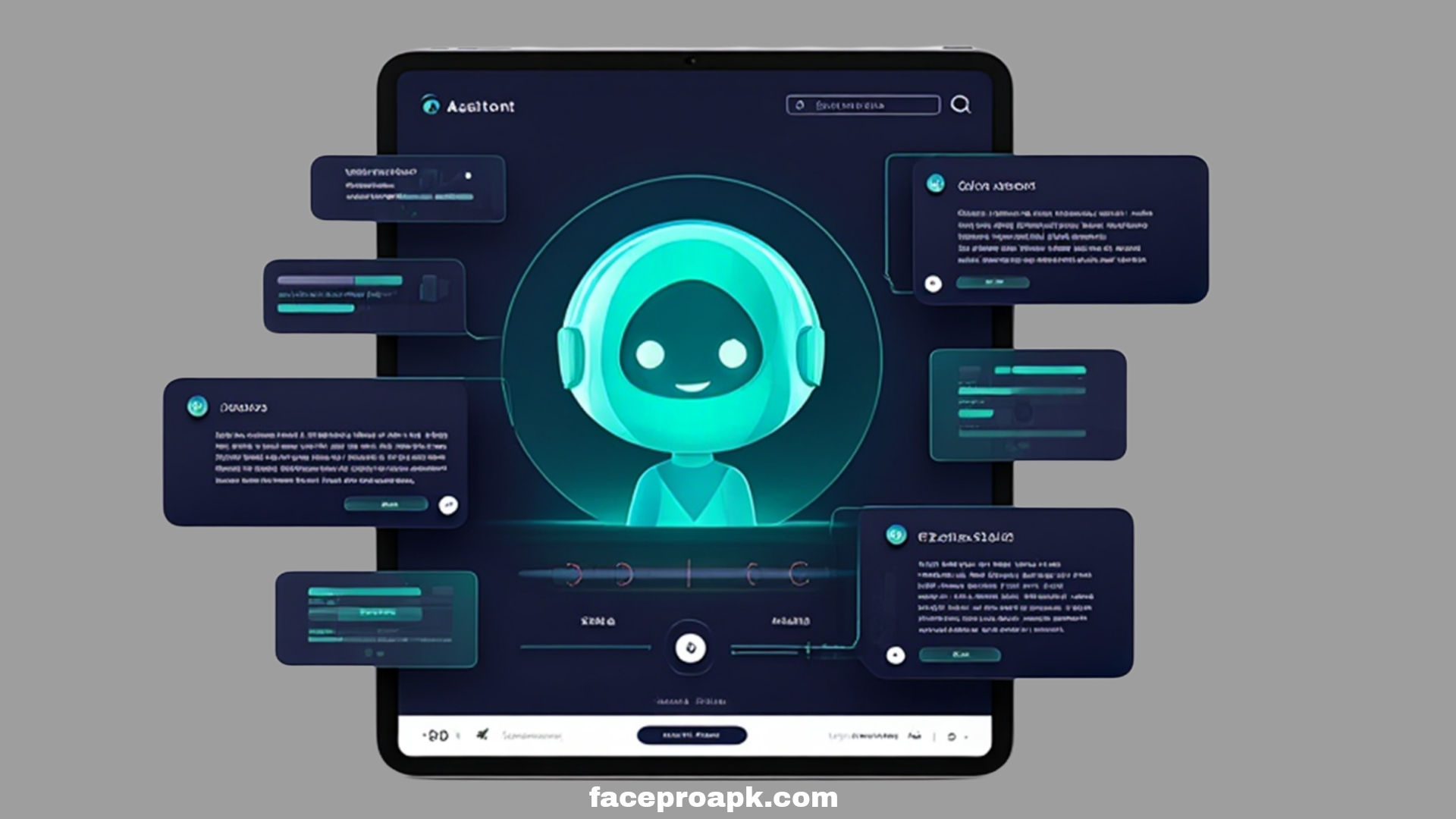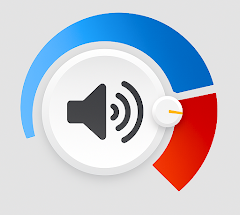This revolutionizes the way we work, communicate, and live-and AI assistants are fundamentally destined to be in the primary wave of change. Smartest, most intuitive, and understatedly present in everyday life, they will be in 2025. Be you a busy professional, a student, or just a person who simply wants to simplify tasks, this guide explores the best AI assistant apps you should try this year.
Why AI Assistant Apps Matter in 2025
Our fast-paced world continues to witness the growing need for efficiency, and increasingly this is witnessed in AI assistant apps. These apps help manage schedules, enhance question-answering capabilities, automate tasks, and even provide creativity sparks. Within the USA and globally, their relevance shoots through the roof, as businesses, educators, and individuals take on AI with increasing zeal to stay competitive. AI assistants are no gimmicks anymore, thanks to advancements in natural language processing and machine learning; they are essential tools of life in the present.
Background & Importance of AI Assistant Apps
Why People Need AI Assistants
Life in 2025 is busier than ever; people would need to juggle work-from-home schedules, personal projects, and other things they could possibly need. They could use time-saving, stress-relieving tools. AI assistant apps serve as a virtual helper, performing tedious functions, answering questions immediately, and providing customized knowledge. These applications are like carrying a personal assistant in the pocket – available at any moment, ready to use.
Current Relevance
The adoption of AI assistant apps is booming at a global scale. In the USA, according to a 2025 survey by TechTrend Insights, 68% of smartphone users rely every day on AI-powered apps. From students using AI for research purposes to businesses that streamline their customer services, AI is transforming industries. The greatest contribution of these applications is to link users electronically over smart devices-from phones to home systems.
How AI Assistant Apps Work
The Concept Explained
At their core, AI assistant apps use advanced algorithms, natural language processing (NLP), and machine learning to understand and respond to user inputs. Whether through text or voice, they interpret requests, process data, and deliver tailored responses. For example, asking an AI assistant to “schedule a meeting” prompts it to check your calendar, suggest times, and even send invites.
Who They’re Designed For
These apps cater to a wide audience:
- Professionals: For task management, email drafting, and data analysis.
- Students: For research, study aids, and time management.
- Creatives: For brainstorming ideas or generating content.
- Everyday users: For reminders, smart home control, or answering questions on the go.
Core Elements of AI Assistant Apps
The best AI assistant apps in 2025 share these key features:
- Voice and Text Interaction: Seamlessly switch between typing and speaking.
- Task Automation: Handle scheduling, reminders, and repetitive tasks.
- Personalization: Learn user preferences for tailored responses.
- Integration: Connect with calendars, email, and smart home devices.
- Real-Time Data Access: Pull information from the web or user inputs instantly.
- Multilingual Support: Communicate in multiple languages for global users.
Advantages of Using AI Assistant Apps
AI assistant apps offer transformative benefits that enhance productivity and convenience. Here’s why they’re worth trying:
- Time-saving tool: scheduling or research tasks can be automated, giving back an approximate number of hours per week.
- Organization: recall appointments, deadlines, and goals.
- Accessibility: Provides a helping hand via smartphone, tablets, and smart devices.
- Encouraged Creativity: idea generation for writings, design, or problem-solving.
- Cost: Free tiers offered by several apps reduce the need for human assistants.
- Learning Aid: assist students with instant answers, synopses, or study plans.
For instance, according to a productivity report by WorkSmart Analytics in 2025, the AI assistant could help a small business owner manage client emails and save an estimated 10 hours weekly.
Some Challenges or Limitations of AI Assistant Apps
However, errors may still blossom in AI assistant apps with limitations. Being aware of their limitations allows for the setting of reasonable expectations:
- Privacy: Security becomes a worry when the app deals with processing some personal data. Privacy policies should be checked with care.
- Accuracy: Erroneous answers could arise from misinterpretation due to ambiguous and ill-defined queries.
- Dependency: Over-dependence can inhibit the development of higher-order thinking and manual skills.
- Connection: Most assistants will rely heavily on the Internet. This is limiting to offline usage.
- Learning curve: Some advanced features might take time to master.
A cautious approach to sharing sensitive information is warranted, and users should validate important outputs, considering their professional context.
Recent Trends in AI Assistant Apps for 2025
The AI assistant app ecosystem keeps on changing very fast. Here are the top trends shaping 2025:
- Voice Mode Improvements: Enhanced speech recognition for natural interaction without use of hands.
- Contextual Awareness: Applications today can understand queries such as “What is the best coffee shop nearby for studying?”
- Integration with Wearables: Sync on-the-go with smartwatches and AR glasses.
- AI-powered creativity tools: Ability generation for art, music, or writing prompts.
- Sustainability Mindset: Some applications have turned their attention toward energy optimization, thus attracting the eco-conscious.
- Business Adoption: Enterprises have made use of Dubai AI assists for internal workflow and customer support.
According to AI Innovations’ report for 2025, there has been a 45 percent rise in apps with multilingual voice support, enabling better global reach.
Market Comparison: AI Assistant Apps vs. Alternatives
How do AI assistant apps stack up against alternatives like traditional software or human assistants? Here’s a quick comparison:
- AI Assistants vs. Traditional Software:
- AI apps are more intuitive, learning from user behavior.
- Traditional tools like calendar apps lack conversational abilities.
- AI offers real-time insights; traditional software often requires manual input.
- AI Assistants vs. Human Assistants:
- AI is available 24/7 and often cheaper (many free options).
- Humans provide emotional intelligence and nuanced judgment AI can’t match.
- AI scales better for repetitive tasks; humans excel in complex decision-making.
For most users, AI assistant apps strike a balance between affordability and functionality, though human assistants remain vital for high-stakes roles.
Cost & Value Factors of AI Assistant Apps
What Influences Pricing?
The cost of AI assistant apps varies based on:
- Features: Basic apps are often free, while premium versions with advanced tools (e.g., analytics) cost $5–$20/month.
- Integration: Apps syncing with enterprise systems may charge higher fees.
- Usage Limits: Free tiers often cap queries or features, while paid plans offer unlimited access.
- Developer Support: Well-maintained apps with frequent updates may cost more.
Finding the Best Value
To maximize value:
- Start with free versions in order to test out the core features.
- Then compare what subscription plans offer based on your requirements (voice mode, integrations, etc.).
- You can look into annual plans because these tend to discount monthly rates by 20 to 30 final.
- Check user reviews on TechRadar or CNET for reliability.
Choosing AI Assistant Apps: Tips
Choosing the best AI assistants app in 2025 will depend on individual purposes. Here are some easy-to-follow rules:
- Setting Your Goals: Do you want task management? Creativity boosts? Choose an app best suited to what you care about most.
- Check out the free versions: Most apps have free tiers so that one can test the functionality of the app.
- Check Compatibility: Find the app compatible with your devices, whether iOS, Android, or smart home systems.
- Maintain Privacy: Only use applications that have good data policies and very secure encryption.
- Read Reviews: Check if there are any consumer comments on their performance and customer service.
- Test Voice Features: If you are interested in the hands-free use, check how accurate is the voice recognition.
Mistakes to Avoid with AI Assistant Apps
Avoid these very common errors:
- Ignoring Privacy Policies: Sharing of very sensitive data without checking uses.
- Clogging Applications: Expecting to do everything with just one application—some really shine in just some aspects.
- App Updates: Missing out on bug fixes or new features by not updating.
- Misusing Accuracy: Blind trust in AI outputs without critical checking of information.
- Based on Trends: Choosing applications based on current trends instead of real needs.
To avoid these, research and thoroughly test before committing to a paid plan.
Future Outlook for AI Assistant Apps
The time frame for AI assistants from 2025 onwards is very promising. Experts predict that AI will gain even deeper integration with augmented and virtual reality for immersive interaction. For example, AI assistants may escort users through AR workspaces or virtual classrooms. Enhanced emotional intelligence might also come into play, with the applications soon being capable of truly gauging user moods. In addition, open-source AI models might bring forth an AI democratization process so that the most powerful assistants may be available to a lot more people. By 2030, Gartner suggests, almost 80% of global businesses will be depending on AI assistants for operational efficiency.
Final Words
AI assistant apps are truly the game-changers in 2025, with unrivaled convenience, productivity, and creativity. From city organization to sparking fresh ideas, these tools empower users from all walks of life. However, understanding your needs, testing out your options, and becoming privacy-conscious are crucial to selecting the right one. As AI maturing every day, these apps are becoming more and more intelligent, making it ever so opportune for users to engage with them now. Use AI assistant apps mindfully; they will expand your horizon, and your future self will be grateful for it!



